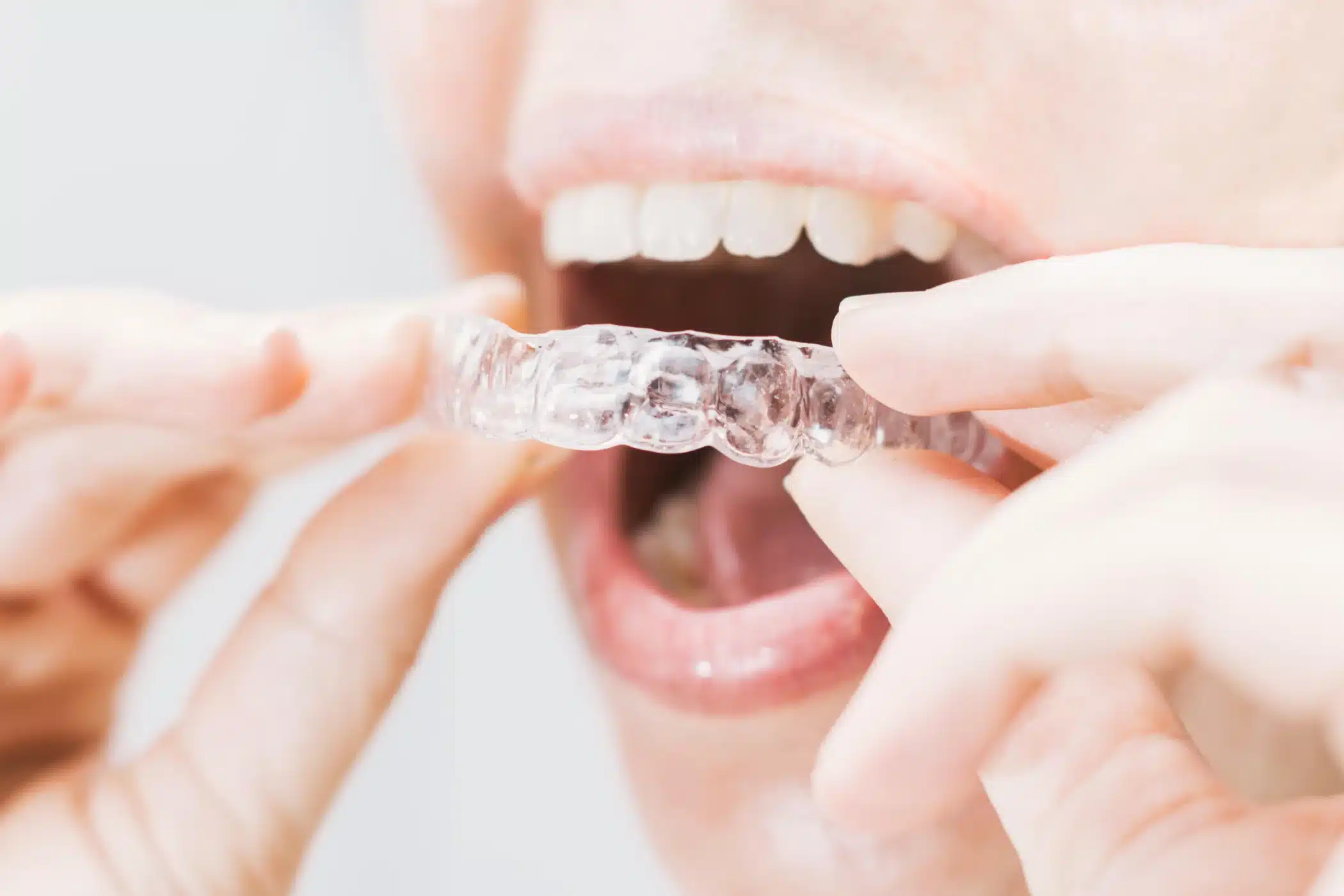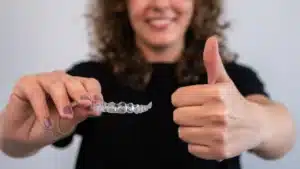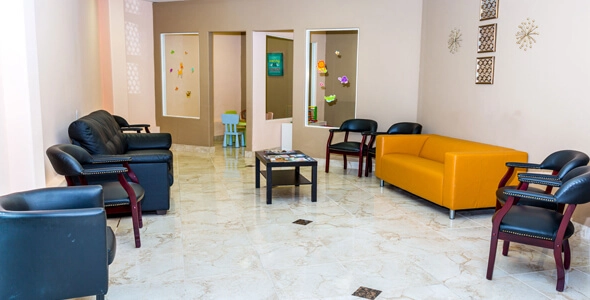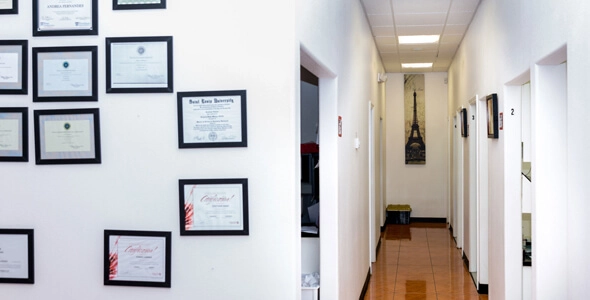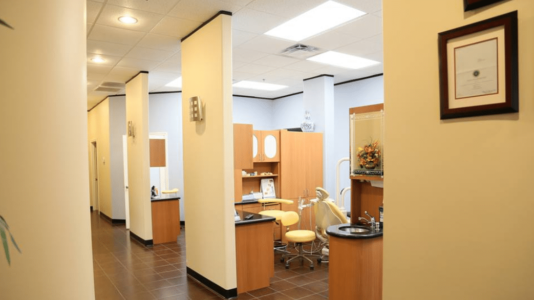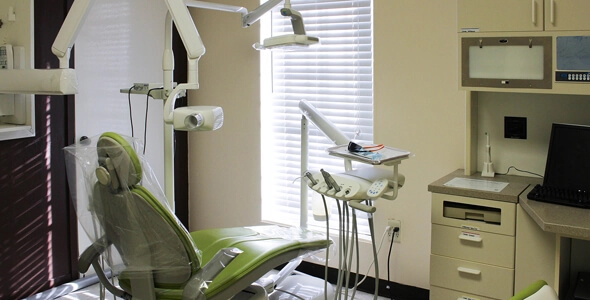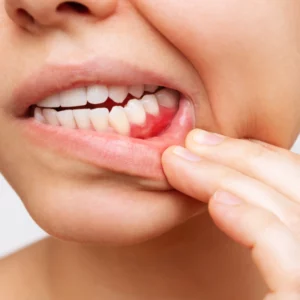Can Invisalign Fix Crossbite?
Crossbite affects approximately 22% of the population, making it more common than underbite, but less common than overbite. Many of our patients at A Dental Care have successfully addressed their crossbite with Invisalign clear aligners. Some research indicates that Invisalign may be more effective than traditional braces for crossbites.
What is Crossbite?
Crossbite is a malocclusion in which some of the teeth of the lower arch are outside of the teeth of the top arch when the jaw is closed.
5 Types of Crossbite
Anterior
In an anterior crossbite, one or more of your front upper teeth sit behind the lower front teeth. While it sounds similar to an underbite, the difference is only some of the teeth are affected.
Posterior
In a posterior crossbite, your upper back teeth sit inside the lower back teeth. In a normal bite, it is the opposite.
Combination of Anterior and Posterior
Some of our patients have a combination of anterior and posterior crossbite. In this case, the entire upper jaw sits inside the lower, due to undergrowth of the upper jaw or overgrowth of the lower.
Bilateral
In a bilateral crossbite, the back teeth of your upper arch sit inside of the lower arch.
Unilateral
A unilateral crossbite is a malocclusion on one side of your mouth, typically due to prolonged thumb-sucking or pacifier use.
What Causes Crossbite?
In most cases, crossbite is attributed to genetics meaning the patient is born with a jaw that is too big or too small. However, in some cases, crossbite is the result of bad habits.
Some of the most common causes of crossbite include:
- Cleft lip/cleft palate
- Mouth breathing
- Early/delayed loss of baby teeth
- Delayed eruption of permanent teeth
- Prolonged thumb-sucking or pacifier use
- Small dental arch
- Small upper/large lower jaw, also referred to as skeletal crossbite
If left untreated, a crossbite can lead to a variety of issues, including problems with your jaw and damage to your teeth and/or gums. At A Dental Care, Invisalign clear aligners are often an option for treating your crossbite.
Invisalign and Crossbite
For many years, traditional braces were the only way to treat any type of malocclusion- but in the late 1990s, Invisalign hit the market. In the beginning, this option was only for mild cases of malocclusion. However, over time, it has advanced to treat a variety of malocclusion, including crossbite.
Many patients agree that this is a much more desirable and effective treatment than traditional metal braces. Here’s how it works:
- Consultation- at this time, our orthodontist will examine your mouth, create an impression of your mouth with dental putty, and take some digital scans. This will be used to create your custom treatment plan.
- The information gathered during the consultation will be sent to the lab for the creation of your aligners, which will be created based on your current and anticipated alignment.
- The aligners will be shipped to our office, and you will come in to have them fitted. We will send you home with the remaining aligners, instructing you to wear them at least 20 to 22 hours a day. They should only be removed for eating and drinking or practicing oral hygiene. You should switch to a new set of aligners every 1 to 3 weeks based on your treatment plan.
- Follow-up- after the first 2 weeks, we’ll have you come into the office so that we can evaluate your progress. After that, follow-up appointments will be set every 4 to 6 weeks. You will not need to come in every time you switch to a new set of aligners.
- At the end of your treatment, we will evaluate your progress. If you have progressed as expected, you will be given a retainer to wear until your jawbone had developed enough density to support the new positioning of your teeth. The orthodontist will decide how long you need to wear it and for how many hours per day.
It is important to note that Invisalign is effective for treating dental crossbite. If you have a skeletal crossbite due to skeletal or jaw irregularities, your best treatment options will be traditional braces or surgery.
How long does it take?
On average, Invisalign takes 12 to 18 months. For crossbite, aligners may need to be worn for up to 36 months. Treatment time varies depending on the complexity of the crossbite and the compliance of the patient when wearing the aligners. Additionally, if you have several issues, such as a crossbite and crowded teeth, your treatment will take longer.
How much does it cost?
Invisalign typically costs between $3,000 to $5,000+, which is comparable to the cost of traditional metal braces, between $2,000 to $6,000+. Cost is determined by several factors including:
- Severity of crossbite
- Duration of treatment/number of aligners required
- Insurance coverage
- Financing options
At A Dental Care, our friendly and professional office staff will contact your dental insurance provider to determine coverage. Since your oral health is directly related to your overall health, we believe that treatment is important. Therefore, we offer a variety of financing options so that you can pay for your treatment up-front and make smaller, budget-friendly payments over time.
Advantages & Disadvantages of Invisalign for Crossbite
At A Dental Care, we believe that it is important to note that Invisalign has advantages and disadvantages:
Advantages
- Covers bite surface
- Removable
- No metal wires or brackets
- Easy to keep clean
- Discreet
- Comfortable
- Convenient
- Less discomfort
- Made with FDA-approved plastic
- Cost is comparable to other options
- May help prevent bruxism
Disadvantages
- Removable (may get lost or broken)
- Does not work for severe or skeletal crossbite
- Slightly more expensive than other options
Schedule Your Consultation Right Away
Crossbite is more common than underbite, affecting about 22% of the population- but you don’t have to live with it. You do have options for correcting this malocclusion, including Invisalign clear aligners.
If you are in or near Houston, Katy, or Spring, Texas, schedule your consultation with the team at A Dental Care today. We have 4 conveniently located offices in Houston, one in Katy, and one in Spring. We also offer extended hours 8:00 AM to 8:00 PM Monday through Friday, and weekend hours 8:00 AM to 2:00 PM on Saturday and Sunday, so even patients who have a busy work schedule can get in.



